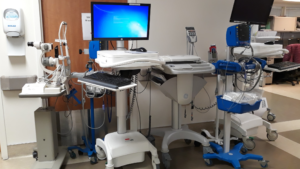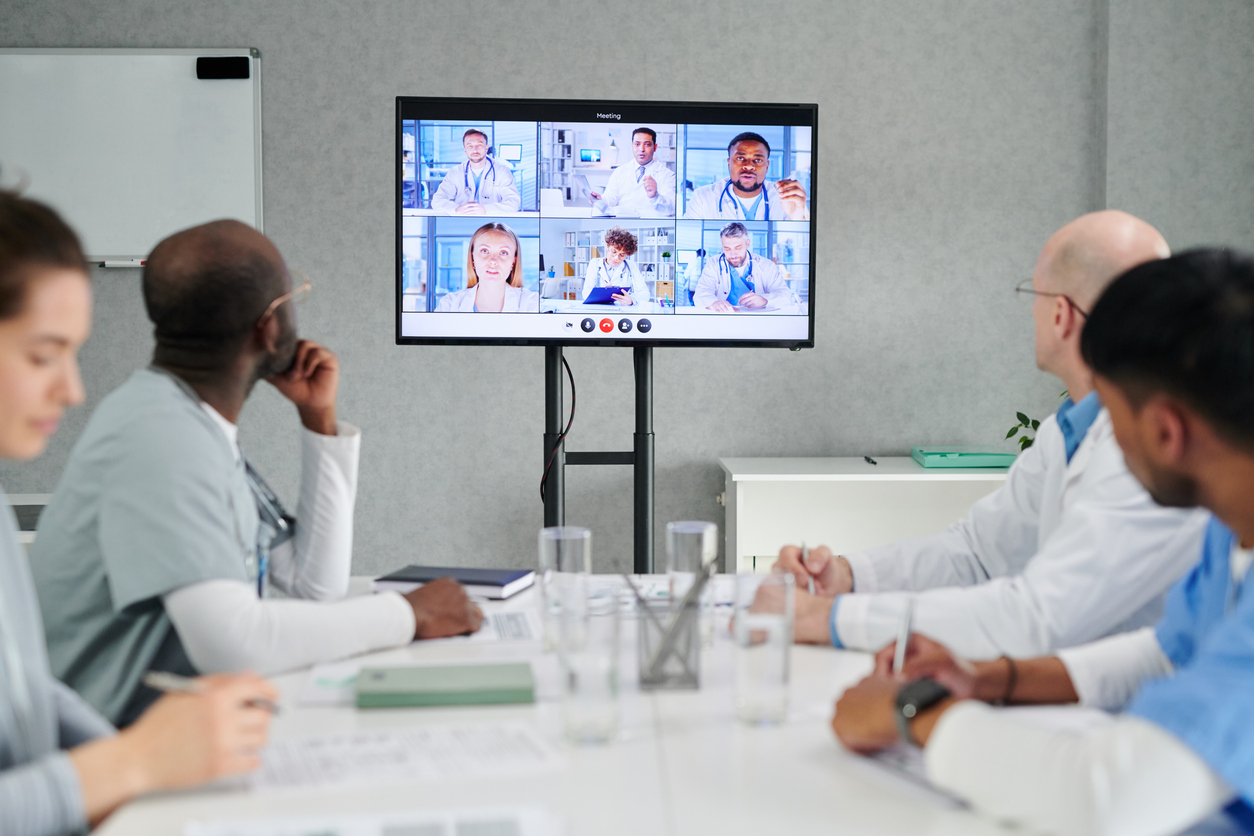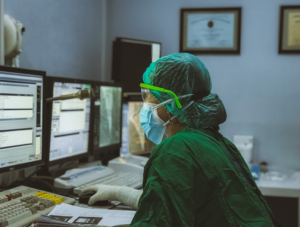
Reliable WiFi Is Necessary for Patient Safety

If you work in healthcare, your job is touched by technology. Whether you are a nurse or doctor, director or VP, you deal with the machines, software, and programs that are dependent on technology to save lives. What happens if that technology is unreliable? Patient safety is at risk.
Contents
What if there is a WiFi outage or interruption?
What is the process for reporting WiFi issues?
Improving outcomes with WiFi automation
– Improved patient safety goals
– Optimal IT resource deployment
Prioritize patient safety in healthcare now
WiFi technology in healthcare
Much of the equipment found in today’s hospitals and clinics is WiFi dependent. This includes:
- EMR/EHR
- Smart bed alarms
- Telemonitors
- Large volume IV pumps
- Syringe pumps
- Enteral pumps
- Robots used in pharmacies and supply chain departments
- Medication dispensing systems
- Communication/RN call systems
- Central monitoring systems
- Telehealth
- Infant security systems
- Thermometers
- Supply chain/product inventory management devices
- Breast milk scanners
- Medication scanners
- Ventilators
- Temperature regulated controls
- Wearable/smart devices
- RFID (asset tracking)
- Glucose monitors
- Video conferencing
- Tablets
- Patient/visitor devices
What if there is a WiFi outage or interruption?
WiFi outages and interruptions can last anywhere from seconds to hours. They can affect individual halls or departments, or entire buildings. No matter when or where they occur though, patients and healthcare professionals are affected. There is no space in a healthcare building that is free from a WiFi dependency.
Healthcare professionals must ask themselves questions such as:
- What happens if we lose even 1 minute of data from a wearable device?
- What if there’s a WiFi interruption during a software update to a pump?
- What if there’s a WiFi issue that affects medical record transmissions?
- Can we adequately monitor all patients if we can’t use WiFi dependent technology?
In most situations, the data or update should arrive…eventually. Is that good enough? What could go wrong if a doctor is missing necessary patient information? What if the outage is longer and professionals must revert to manual processes? Is everyone sufficiently trained? Or does the risk of patient safety issues occuring increase?
What is the process for reporting WiFi issues?
The degree to which patient safety in hospitals is affected will depend on what caused the WiFi issue and how long the issue lasts. It also depends greatly on when IT is made aware of the problem. If there is a few second “blip” during a data or software update, did anyone recognize the issue? Is IT alerted automatically and proactively? Or, are teams dependent upon manual reporting processes, in which case they won’t know there’s a problem until patients are affected?
The sooner IT is alerted, the better for everyone. IT professionals work around the clock to ensure all users have access to reliable and optimal technology. They are responsible for hundreds or even thousands of devices, programs, and applications. For this reason, it is impossible for them to monitor every piece of technology, manually, in real time. Instead, they need the support of a WiFi automation solution.
Improving outcomes with WiFi automation
WiFi automation solutions automate the detection, notification, and mitigation of WiFi issues. Depending on the solution, hospitals and clinics experience:
-
Improved patient safety goals
Thanks to 24/7 analysis of the entire WiFi ecosystem (including all connected devices, infrastructure, and sources of interference), and proactive alerts, IT teams have the visibility they need to ensure the network is always reliable and optimized so patient safety is not adversely affected by WiFi issues.
-
Enhanced user satisfaction
When solutions automatically identify the root cause of issues, they significantly reduce the time it takes IT to resolve problems. This means that all users can depend on the WiFi at all times. Clinicians, administrators, and other users will trust that the resources they need for their jobs will always be available.
-
Optimal IT resource deployment
With WiFi automation solutions streamlining WiFi optimization, hospitals and clinics see a dramatic reduction in WiFi issues and problem tickets. This allows for optimal IT resource deployment, with teams able to focus on other critical responsibilities, rather than having to spend all their time managing the WiFi infrastructure.
-
Greater budget controls
These solutions can identify long term performance trends so that decision makers have greater insight into what is needed to upgrade/update their specific technology. They can also provide remote troubleshooting so that IT does not have to travel to resolve issues. Both these capabilities allow for greater, more efficient budget controls.
Prioritize patient safety in healthcare now
WiFi-dependent technology is going nowhere. It will continue to dominate healthcare. Securing and optimizing the WiFi networks that this technology depends upon is necessary for all healthcare providers that want to improve patient safety in hospitals and boost employee experience.
Wyebot’s Wireless Intelligence Platform (WIP) delivers:
- HIPAA compliant network analysis
- AI-powered visibility into WiFi gaps/interruptions with recommended solutions
- A customizable notification system for multiple Trigger Criteria and alert recipients
- 24/7/365 business critical coverage for your entire facility
- Enhanced cybersecurity with AP classification and port scan tests
- 30 days historical data for critical end user analytics
Ask your IT professionals about WIP today to experience:
- 90% faster problem resolution times
- 70% fewer WiFi problem tickets
- 80% fewer remote site visits


